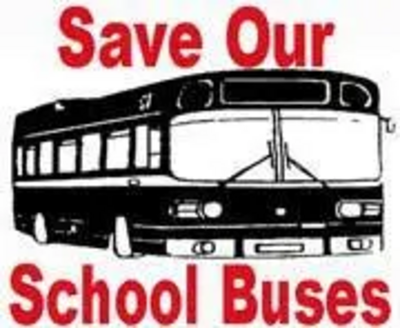Lib Dems launch "save our school buses" campaign

This week the Liberal Democrats are launching their 'Save Our School Buses' campaign, in response to the Government's draft School Transport Bill.
Research by the Liberal Democrats shows that school run traffic could increase by 18% under new Government proposals to end the automatic entitlement to free school transport, the opposite of what is actually intended.
The draft School Transport Bill, announced last month, would allow Local Education Authorities to charge all but a minority of children for their bus travel. This is very likely to have the effect of increasing, rather than reducing, the use of cars for the school-run - with the potential for more than 200 million extra car miles being added to the already congested school run. This would result in more 7550 more tonnes of Carbon Dioxide emissions each year.
Commenting, John Thurso MP, Liberal Democrat Shadow Transport Secretary, said:
"Legislation to combat the scourge of the school run is welcome, but the detail of the Government's proposals must be questioned.
"Charges for using school buses must not be levied on families that currently rely on the service. That would only drive those families back into their cars and make the problem worse."
The Liberal Democrats will this week launch a petition to Charles Clarke and Alistair Darling calling on them to stop plans to remove free travel for children who travel more than 3 miles to school.
Norman Baker MP, Liberal Democrat Shadow Environment Secretary, added:
"It is environmental madness for the Government to be encouraging even more cars on the school run. The extra cars on our roads will add thousands of extra tonnes of Carbon Dioxide to our atmosphere and add even more congestion. These proposals fly in the face of everything the Government says it is trying to achieve on the environment."
Notes
- On the 8 March the Government published the Draft School Transport Bill, with the underlying aim of reducing car use for the school run. The consultation closes on 25th June 2004.
- LEAs will still have to make home-school travel arrangements for pupils of compulsory school age (5 to 16 year olds) living beyond the current statutory walking distances (2 miles for 5-8s, and 3 miles for 9-16 year olds to the nearest available school).
- But LEAs will be allowed to charge all those not classified as "protected children", defined in England as children who are eligible for free school meals and milk. The House of Commons Library states that in Wales the definition may be different, but will include children eligible for free school meals and milk.
- An evaluation of the first Yellow Bus pilots scheme (Steer Davies Gleave for the Department of Transport, Oct 2003) suggests that where services are being introduced to shift school run traffic from cars to buses parents appeared unwilling to pay more than £1 a day, a sum that doesn't cover the full cost of the service.
The potential effect on School Transport
- In England there are 155,187 children of primary school age who live more than 3 miles from their school. 83% (128,960) will no longer be eligible for free school travel.
- In England there are 556,742 secondary school children who live more than 3 miles from their school. 85% (472,742) will no longer be eligible for free school travel. [PQs adjusted to remove 17+ age groups from secondary figures - DfES: Schools in England, Jan'03 (Table 15)].
- At least 20% of 5-10 year olds and at least 66% of 11-16 year olds travel by bus more than 3 miles to school [DfT Personal Travel Factsheet 2 - January 2003: Travel to School in GB]. Using these figures, this would mean that 25,792 primary school and 312,010 secondary school children who currently travel by bus to school will lose their free entitlement to free travel.
- This means there are 337,802 children travelling to school for free by bus each day who could potentially switch to being driven by car.
- The average number of children per household is 1.7 (ONS). Therefore, based on return journeys on the 190 school days per year, 198,707 extra "school runs" cars could be generated. A total of 75.5million additional trips, of at least 3 miles, means additional car mileage of at least 226.5 million miles per year.
- This is the equivalent of 385m passenger car miles. The current 2.2bn passenger car miles a year devoted to the school run could, therefore, increase by 18%, (to 2.6bn).
- The 226.5m of additional car mileage is the equivalent of an additional 7550 tonnes of CO2 every year [Converted from DEFRA figures stating 10 tonnes of C02 as equivalent to 30,000 miles of an average petrol car].
